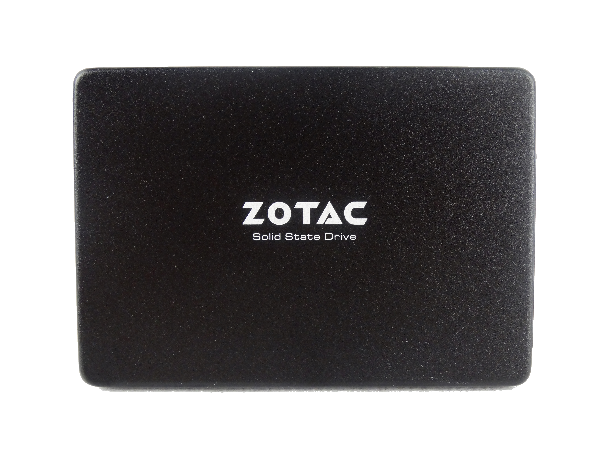Zotac Premium Edition SSD Review
Armed with Phison's new v.1.6 firmware for the S10 processor and low-cost flash, Zotac takes aim at the mainstream and gamer SSD markets.
Why you can trust Tom's Hardware
Conclusion
In the last year, we've given Phison's S10 controller a lot of attention. Our interest always involved the processor's potential, rather than how it was actually performing at the time. After all, when you lay out its specifications, features and advanced technologies, there's a lot to get excited about.
Optimism often leads to a mismanagement of expectations, and for a period of time we started to doubt the PS3110-S10 would ever live up to its full potential. The latest 1.6 firmware increases performance and is certainly a step in the right direction. But we're still waiting for version 2.0. At least we have a target date for its release.
Focusing on the drive in front of us, Zotac started with a really good foundation for a gaming-oriented SSD. Its Premium Edition SSD delivers solid and consistent sequential read and write performance at a very low price. Competing SSDs ship with three-bit-per-cell (TLC) flash that cannot sustain high write speeds; Samsung's 850 EVO is the lone exception. Everything else quickly bleeds through its emulated SLC cache and falls back to native TLC performance, which is often slower than a mechanical hard disk. When you install a game, big blocks of data are being written sequentially. TLC just isn't ideal for that.
Further, games require a lot of capacity. Flash is still expensive compared to rotating media, but Zotac manages to get the price down on its Premium Edition SSDs. The 240GB model sells for just $65 and the 480GB version goes for $140. We would love to see a 1TB implementation for less than $300, though Zotac hasn't gone there yet. As we write this, the Premium Edition SSD is one of the least-expensive solid-state drives on Newegg at both capacities. Zotac is undercutting the other mainstream MLC-based drives, the entry-level TLC-based products and, most importantly, Samsung's 850 EVO.
That last part is huge. Zotac's Premium Edition is the first drive that slides in under the 850 EVO by enough of a margin to earn our recommendation. More thought goes into an endorsement than just pricing, too: Zotac also achieves comparable performance. But be aware that's where the similarities end. Zotac only equips you with a three-year warranty, and you don't get any cloning software to facilitate a smoother transition from your existing hard drive to the SSD. Samsung's package is a little more generous, justifying a bit of its premium.
MORE: Best SSDs For The Money
MORE: Latest Storage News
MORE: Storage in the Forums
Chris Ramseyer is a Contributing Editor for Tom's Hardware, covering Storage. Follow him on Twitter and Facebook.
Get Tom's Hardware's best news and in-depth reviews, straight to your inbox.
Follow us on Facebook, Google+, RSS, Twitter and YouTube.

Chris Ramseyer was a senior contributing editor for Tom's Hardware. He tested and reviewed consumer storage.
-
Onus If I needed another SSD, I'd definitely put this one on my short list. I have a question though, that pertains more to testing in general than to this specific drive, but it certainly applies: will two identical SSDs (including same firmware, e.g. two units bought off the shelf at the same time) have identical performance? We know that the "silicon lottery" affects timing and overclocking limits on RAM; does it also play a role in SSD performance? I would think not, but if so, would love to know why, and how much. Thanks.Reply
-
icepick314 I don't know...Reply
Samsung Evo Pro 1TB with 10 year warranty is around $400-$450...
I say splurge a little and get the capacity, performance, and 10 years of worry-free storage... -
salgado18 ReplyI don't know...
I say if you want a drive for 10 years, wait for the new tech to arrive this year, a lot faster (over 3x) and with new connections (SATA is old already).
Samsung Evo Pro 1TB with 10 year warranty is around $400-$450...
I say splurge a little and get the capacity, performance, and 10 years of worry-free storage... -
LordConrad Just out of curiosity, how do these drives compare to the Samsung 850 Pro on notebook battery life?Reply -
Onus Yes, please add power consumption. The Samsung drives are remarkable in how little idle power they use compared to competitors (I believe it is typically 30%).Reply -
g-unit1111 Reply17403001 said:Just out of curiosity, how do these drives compare to the Samsung 850 Pro on notebook battery life?
Yes. I would be curious about this as well. This looks like a fairly nice drive and $140 for 480GB and Toshiba NAND looks pretty solid and a decent competitor to Samsung. -
shrapnel_indie Well, I wonder how TH would rank Toshiba's Q300 offerings against this and Samsung... from what I seen elsewhere their Q300 series puts up quite a fight with Samsung.Reply -
CRamseyer Thanks for all of the excellent questions.Reply
We tested the Q300 Pro (MLC version) and the review is in queue. We do not have the Q300 drive with TLC.
On the notebook battery life front, we measured the 850 Pro 512GB at 657 minutes. There are so many good drives available now and such a wide divide between the high performance and low cost models that we charts the drives separate.
There are size limits to for the performance charts. At some point I plan to list a couple of hundred drives in massive charts so everyone can see how they all stack up.
The 850 Pro is the only model from Samsung with a 10 year warranty. The 850 EVO carries a 5-year warranty. The SanDisk Extreme PRO also carries 10 years of coverage.
